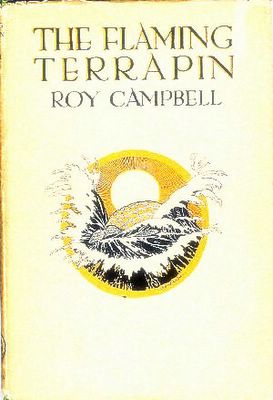

Noam Chomsky interviewed by Ian Rappel
Socialist Review July, 2005
The G8 are coming to Scotland in July, and they've put forward what appears to be a progressive agenda on Africa, Third World debt and global warming. But what in your opinion is the US, under George W Bush, looking to get out of the G8 summit? Well, it's not a big secret - they're quite frank about it - and I wouldn't suggest that the other members of the G8 are very different. I'm just reading a book by Philippe Sands, a British Professor of Law at the University of London, who describes how, in relation to the US, Britain has moved from an independent society to a servant society, and the others are not all that different. The G8 come from pretty much the same narrow interlinking sectors of power and concentrated resources, but the Bush administration is at the extreme of a pretty narrow spectrum, and their policies are quite open - it's not a secret.
Take, say,
global warming. No doubt they'll come out with some nice words at the G8 summit, but nice words are cheap - actions are what count. The Kyoto Protocols were no great advance forward, but there was at least something. The Bush administration was virtually alone in rejecting them, but it's important to remember that it rejected them over the strong opposition of the population of the United States. Indeed, an overwhelming majority of the population of the US supports the Kyoto Protocols. In fact it supports them so enthusiastically that a majority of Bush's voters, because they supported them so strongly, thought that he supported them. But the Bush administration has a primary interest here, and that is to stuff the pockets of its rich friends with as many dollars as possible, and leave the costs to future generations.
It's not just global warming. The next thing they did after refusing to join the Kyoto Protocols was to pass the bill to allow
depletion of the Strategic Reserve. Now, the Strategic Reserve is holes in the ground where you pour oil in case it's ever needed. If you take oil out of it and let the oil companies sell it, they make a profit, of course, at the cost of increasing the reliance of the country on imported oil and causing significant problems of access within ten or 20 years. Well they didn't call it the 'Depleting the Strategic Reserve Bill' - they never would've got away with it if they'd called it that - so what they call it is the 'Arctic Wilderness Drilling Bill'. But the oil in the Arctic is just the Strategic Reserve - same thing - it's oil, in the ground, in the United States. In fact, depleting the actual Strategic Reserve would make a lot more sense because when you deplete the oil in the Arctic, you're also harming the environment, you're harming indigenous people and so on. If you empty out the holes in the Strategic Reserve you're not harming anyone except the population of the future.
So what's the point in doing it? Well, the point is
it'll enrich some of your rich friends for the next ten or 20 years. It will increase reliance on foreign oil, which means mostly Gulf oil, and it will lead to problems of access, but it's worth it - it doesn't matter - what's important is short-term gain for very narrow sectors of power. And if global warming turns into a total environmental catastrophe, which it might, it's for somebody else to worry about, like our children or grandchildren. It's not an issue - and that's an extreme position on a pretty narrow spectrum.
The same is true of the other issues. Take
Third World debt. First of all, does it exist? I mean, if I lend you money, and I know that it's a very risky loan, and I therefore demand very high interest payments so I make plenty of money out of the loan that I give you - and then at some point you can't pay - whose problem is it? Well, by capitalist principles, it's my problem. If anyone believed in capitalism - which of course no wealthy sector's willing to do - it would be my problem. I made a risky loan, I made a lot of profit out of it, but if by now it turns into a bad loan - well, too bad for me.
But that's not the way the international system works. If a bank makes a loan to, for example, General Suharto of Indonesia or some Argentinian neo-Nazi, and they know it's risky, they use high interest rates to get a return on it. The bank makes plenty of money, and the debt stays about where it was. If then at some point Indonesia, Argentina or whoever it is can't pay the debt, it's not the bank's problem because at that point the International Monetary Fund (IMF) steps in. The IMF was described accurately by its American Executive Director as the 'Credit Community's Enforcer'. That's what the IMF is - now what does the IMF do?
Well, money was actually borrowed by General Suharto - the most corrupt dictator of the modern period by far (as estimated by the British organisation Transparency International). He took loans, he enriched himself, he enriched his other friends, and so on. Indonesia can't pay off its subsequent debt, so who's supposed to pay it? Poor people in Indonesia are paying for it - they're subjected to Structural Adjustment Programmes - so they get strangled in order to pay off the loans that they never borrowed in the first place. Meanwhile, what about the rich banker here? Well, you know, he's not going to accept any risk - he has to be paid off by Northern taxpayers via the IMF, who make sure that the investors and lenders don't have any problems.
So the system works by the combination of imposing the debt - which they didn't borrow in the first place -
on the poor people of the South primarily, and to a secondary extent on Northern taxpayers. That's called Third World debt. Why does this scam even exist? There probably is no Third World debt if we adopted just elementary capitalist principles. It's a power system. And in fact sometimes it's even worse.
One of the most highly indebted countries in the world is Nicaragua. Its huge debt comes from two sources. The one is the US war against Nicaragua which practically destroyed the country in the 1980s. And the second is the enormous corruption - unbelievable corruption - of the governments that the US instituted in the 1990s, and have been running the place ever since. So between them there's a huge foreign and also a huge domestic debt. Is that the fault of the people of Nicaragua? What did they have to do with it? They're the victims.
In fact, there's a very simple way of getting rid of the international debt in Nicaragua - a very conservative way of doing it - the US should follow the law. After all, the US was ordered by the World Court, backed by two UN Security Council resolutions (which the US vetoed, with Britain politely abstaining), all of which demanded that the US terminate its terrorist atrocities and pay enormous reparations. There were modes for calculating reparations that were worked out and came up with internationally agreed estimates. These sums would've paid off the international debt and gone well beyond - enabling Nicaragua to reconstruct some of the wreckage. But that's a conservative principle - following the law - and therefore it's out of the question, just like capitalist principles are out of the question when you don't gain from them.
So Nicaragua has a huge debt, becomes a Highly Indebted Country, and is given a little leeway on paying its debt, and even this money goes into enriching the rich cronies of then President Aleman, and so on. The whole thing is just a scam. So maybe there is no Third World debt - or if there is it's just marginal. You can be pretty sure that these questions are not going to come up at the G8, because they would harm the interests of the rich and powerful, and that's not what the game is about. Going back to your question, the Bush Administration is at an extreme, of that there's no doubt. But it's an extreme of a very narrow spectrum.
What are your views on globalisation and the role of the G8?
Globalisation is a term of propaganda, and we should never use it. There is a technical meaning of globalisation. It means international integration. This can take all sorts of forms. In fact, if we use globalisation in this neutral technical sense of international integration, then the leading proponents of globalisation historically have been the workers' movements and the labour movement. That's why every union is called an International. Of course they aren't Internationals but that's what they strove to be. There were several failed attempts to develop Internationals through history, but the idea of international integration at the level of people - that's the ideal of the left and the workers' movements from their origin.
Interestingly now, for the first time in years, there are actual seeds of what could be the first meaningful globalisation in history - namely the World Social Forum and its regional and local offshoots, and the various local and regional movements that partially integrate themselves in that framework - I mean, that's real globalisation. It brings together people from many different countries, mostly the South, where most of the activism and vitality is, but increasingly the North as well - working people, environmentalists, feminists, the anti-war movement - a wide range of interests and a broad variety of people.
Last time I went to Porto Alegre, the first thing I did off the plane was go, not to the World Social Forum, but to the meetings of Via Campesina (the international peasant union), a very exciting movement of some of the most oppressed people in the world with plenty of vitality, energy and vibrancy. This was not part of the World Social Forum but kind of an offshoot - a related group that happened to be meeting at a Landless Workers Movement farm not far from Porto Alegre, and there's a lot of things like that including youth forums and so on. Okay, that's globalisation - but it's not called globalisation because it's for the benefit of people, and people are incidental and irrelevant to power systems.
What's called globalisation is the integration of corporations, and of corporate investor interests, banks and so on - and the few states like G3 [Germany, Japan and the US] which basically cater to their interests. That's called globalisation - but that's just propaganda, just as the term 'free trade' is propaganda. In fact the people who are interested in real globalisation are called anti-globalisation - again, effective propaganda.
Unfortunately, the popular movements have accepted a lot of this terminology, which they shouldn't. They should call themselves pro-globalisation - as they are - but globalisation in the form of international integration in the interests of people. If you look at the deliberations of the World Social Forum for example, in many meetings, the panels and discussions, also at the regional meetings in various countries, they're discussing real problems and producing serious proposals about them. But they are aimed at people's rights - the social, cultural, economic, political rights of the great mass of the population of the world. So therefore, the propaganda system naturally dismisses them and pretends that it's some kind of crazy carnival or something. On the other hand, the meetings taking place at the same time at the World Economic Forum in Davos or G8 in Edinburgh - that's called real globalisation - because they're concerned with the interests of the people that count.
The great American political economist Thorstein Veblen, one of the most important social thinkers of the last century, made a distinction between what he called the 'substantial people' and 'the underlying population'. The 'underlying population' is almost everybody, while the 'substantial people' are the people that count. The ones who count have money, power, and influence over parts of the reigning tyrannical structures - the corporate structures that administer markets, making sure they don't function except in the interests of the rich, and the governments - they're the 'substantial people'. And they're the ones who are meeting at the G8.
The 'underlying population' is out of it. I mean, they do and can develop their own movements, and in fact make plenty of achievements, and they've won plenty of victories over the years - but that's the opposition to the G8.
The G8 is meeting with the backdrop of the Iraq war. What prospects do you think that presents to the Bush administration vis-�-vis their ability to get their agenda accepted at the summit?I think their agenda is pretty well accepted at the G8. There is some debate about tactics but no serious principled objection. Britain has chosen to dismiss itself and to become a kind of
US mercenary state - the 'spear carrier for Pax Americana', as it's described with disdain in a recent issue of Britain's leading journal of international affairs - but the others maintain some degree of independence. Nevertheless, they pretty much adopt the same framework as the US, if not totally.
What will happen in Iraq is pretty hard to say. It's been a very surprising war in my opinion. My own assumption, and I think the assumption of most people who had any sense of the situation, was that this would be maybe the easiest military victory in history. One of the reasons that the US and Britain attacked Iraq is that they knew it was
totally defenceless. The country had been devastated by a decade of murderous US and British sanctions, which had killed hundreds of thousands of people, reduced the country to wreckage, and strengthened Saddam Hussein. In fact the sanctions forced the Iraqi population to be so dependent on him that they couldn't send him the same way as the other monsters supported by the US and Britain - like Suharto and Ceausescu and a whole stream of others. Indeed, the post-war investigations by Kay and others showed that the country was being barely held together by Scotch-Tape at the point of the invasion, and Britain and the United States pretty much knew that, so they were willing to invade. It should've been a cheap, easy invasion.
It's almost inconceivable that they didn't succeed. I mean here they were invading a country that's completely defenceless with no external support for any resistance - not like the partisans in Europe who had external support. The US and Britain were eliminating two murderous regimes - one the sanctions regime, and the other Saddam Hussein. If they had just eliminated the sanctions regime or turned it against weapons, the population probably would've got rid of Saddam Hussein on their own like in other cases, but that didn't happen. So the two brutal regimes were there - the US and Britain were getting rid of them - they were coming in with tons of money for reconstruction and rehabilitation and so on. It's hard to see how you could fail. I don't think there have been - indeed it's hard to imagine - any more favourable conditions for what should have been probably the easiest military occupation in history. But the US and Britain succeeded in turning it into a
major military catastrophe - a social and military catastrophe. This may be the worst military catastrophe in history.
The US and Britain actually succeeded in creating a resistance - a brutal resistance, but it's there. They succeeded in infuriating the population by all sorts of measures. They have failed to carry out the most elementary reconstruction - according to the last figures I looked at the
electricity still isn't at the pre-war level. They killed maybe
100,000 people by last October - obviously more now. They turned Fallujah into Grozny. They've approximately doubled the number of the young children suffering severe malnutrition and likely permanent brain damage - 'wasting children' they're called.
You know they're having a lot more trouble in Iraq than Nazi Germany had in occupied Europe, and Russia had in Eastern Europe. The Russians had troops in Eastern Europe but they didn't run the countries - they were run by local officials and security forces. If things got out of control - like in Hungary - they sent in the Russian army, but that was occasional. The same with the Germans in occupied Europe. There were German troops in the background, but the political affairs, the economic affairs, security and so on, were run by local forces with the Germans in the background. And, in fact, if it hadn't been for outside support the partisans would have been wiped out in no time.
None of this existed in Iraq but the US and Britain have nevertheless turned it into a catastrophe, even for themselves, quite apart from the
costs.
The US and Britain are naturally strongly
opposed to any form of democratisation. So both the US and Britain were strongly opposed to elections in Iraq and tried in every way to prevent them. Right through the year 2004 there was effort after effort made to undermine and evade elections. Finally, both the US and Britain were compelled by popular resistance, and this is not insurgents - they don't care much about the bomb throwers - it's just non-violent resistance,
just mass popular refusal to accept US/British orders. This was symbolised regularly by Ayatollah al-Sistani's fatwas, but when they bring a huge mass of people into the streets it's because they want to be there.
So the US and Britain had to back down and permit some kind of elections. Of course,
once they had to permit them, they immediately took credit for them and counted on the media and the intellectuals to applaud - you know, just like normal - and immediately turned to try to subvert them. For example, every party leader, even the US candidate (who got creamed incidentally), had to have on his platform a call for a withdrawal of US/UK troops. Well, the day after the election in the Financial Times there was a big interview with Tony Blair and the first thing he says is there will be
no timetable for a withdrawal of troops.
In other words, we will make sure to subvert the elections, and Washington said the same thing. It wasn't hidden; it was open - we didn't want the elections, they were forced on us and now we have to subvert them. We have to make sure that there's no call for a withdrawal of troops. We have to try to make sure that the Iraqi political class which we've partially managed to put in power will accede to US/British demands to undermine the Iraqi economy, by
opening up to foreign takeover, and we have to make sure that they don't resist that - that's the struggle that's going on in the background.
What will happen is very hard to say. It depends a lot on what the people of Britain and the United States decide to do. If they're willing and they act to support genuine Iraqi sovereignty then there's a possibility. Otherwise, the US and Britain will - as in the past - do what they can to prevent it from happening. You can understand why - it's not particularly obscure - democracy in a sovereign Iraq would be an utter disaster for the US and Britain. They would do anything to prevent it.
All you have to do is think what the policies would be of a relatively democratic, more or less sovereign Iraq.
If it's at least marginally democratic, it'll have a Shi'ite majority. The Shi'ites of Iraq don't particularly love Shi'ite Iran, but they'd obviously rather have a friendly than a hostile neighbour, so they will
patch up relations with Iran - the last thing that the US and Britain want.
In addition, the existence of a relatively sovereign and Shi'ite Iraq is going to increase the agitation in the Shi'ite areas of Saudi Arabia for elimination of the bitter oppression of the US/British-backed regimes, and allow some degree of autonomy or freedom. Those happen to be the areas of Saudi Arabia where most of the oil is. So if you look a little bit off in the future you can imagine a Shi'ite alliance - Iraq, north eastern Saudi Arabia and Iran - which controls most of the world's oil. Are the US and Britain going to sit back and watch this?
Furthermore, Iraq is very likely to move, with any independence, to recover its
natural position in the Arab world - namely as its leading power: the most educated, advanced, developed and wealthy state - a traditional position that goes back to biblical days in one or another form. So they'll probably move to restore that position, which means confronting the regional enemy, namely Israel - by now virtually an offshore US military base. They'll oppose the Israeli takeover of the West Bank and oppression of the Palestinians. That means
they'll rearm and they may very well develop weapons of mass destruction, just as a deterrent. Again, are the US and Britain just going to sit by and watch this happen?
They may have to, but only if it's really forced on them. So the
idea of the US and Britain permitting a sovereign and democratic Iraq is so
outlandish that you have to be
deeply indoctrinated even to think about it. They may be forced to, just like they were forced to accept elections, but they're certainly not going to do it willingly and they'll resist it in every possible way. Actually, the foreign minister of Iran a couple of weeks ago stated that Iran is strongly in favour of a democratic, sovereign Iraq. Well, of course we laugh and dismiss it - you don't pay any attention to the leaders of states whether it's Iran or the G8 or anyone else. On the other hand, if you think about it, that's more credible than when Bush and Blair say it. I mean Iran wouldn't like it, but they could tolerate a democratic and sovereign Iraq. The US and Britain just couldn't tolerate it.










 No umbrella today, and plenty of rain, but my Billabong Blue Jedi top (it has a hood) kept me fairly dry.
No umbrella today, and plenty of rain, but my Billabong Blue Jedi top (it has a hood) kept me fairly dry.


 Minerals Management Service says production in the gulf is no longer 100 percent shut down.September 29, 2005: 2:56 PM EDT
Minerals Management Service says production in the gulf is no longer 100 percent shut down.September 29, 2005: 2:56 PM EDT 
 Noam Chomsky interviewed by Ian Rappel
Noam Chomsky interviewed by Ian Rappel 







 Out of a host of images, the one I remember best is that a strong, young guy had attached himself with a rope to a turtle or some other large, powerful, fast moving swimming creature. The idea was that I had to hold onto him and hold my breath as we descended down and eventually would go through some underwater openings and manmade tunnels into some kind of structure. A shipwreck or something.
Out of a host of images, the one I remember best is that a strong, young guy had attached himself with a rope to a turtle or some other large, powerful, fast moving swimming creature. The idea was that I had to hold onto him and hold my breath as we descended down and eventually would go through some underwater openings and manmade tunnels into some kind of structure. A shipwreck or something. 
